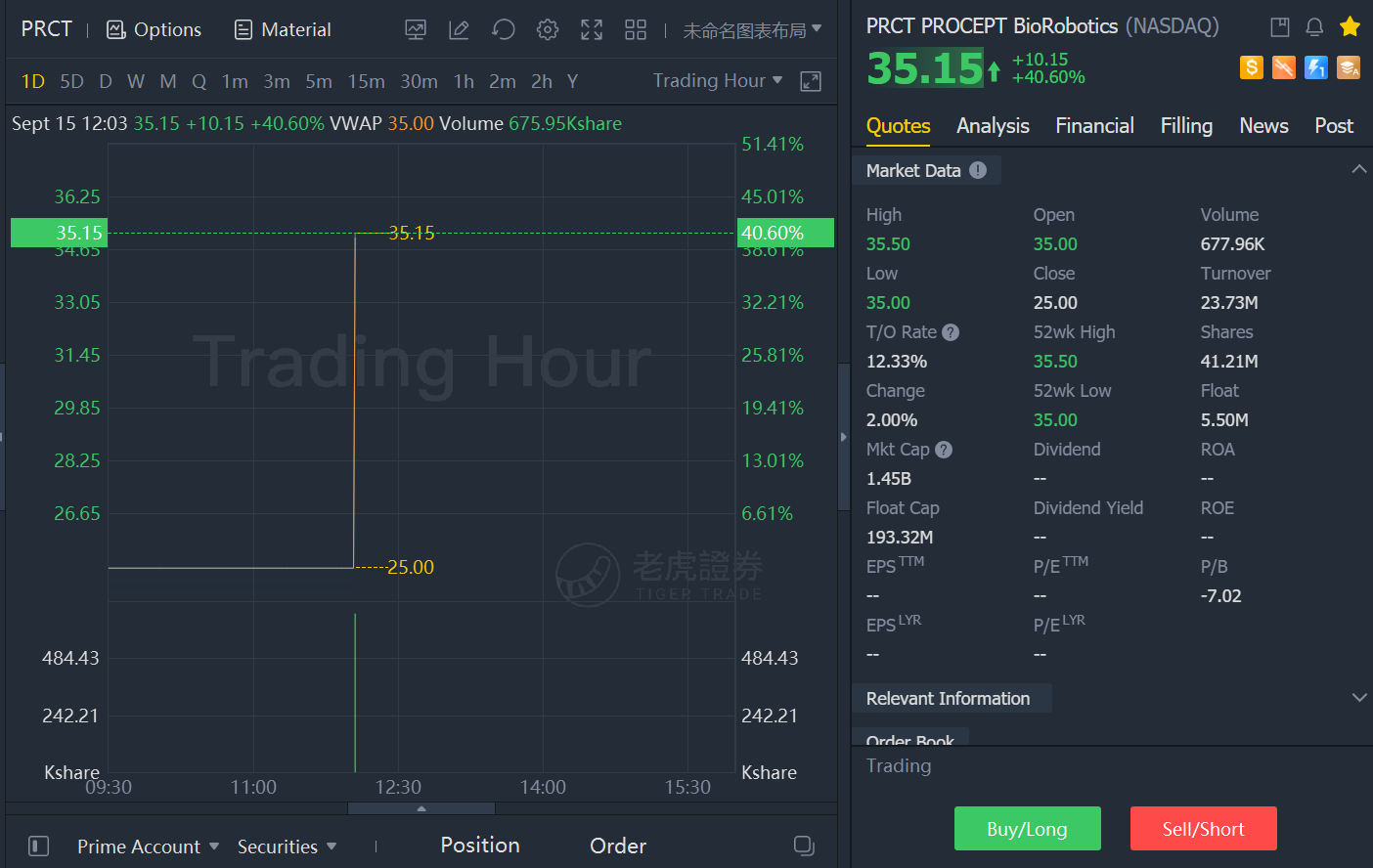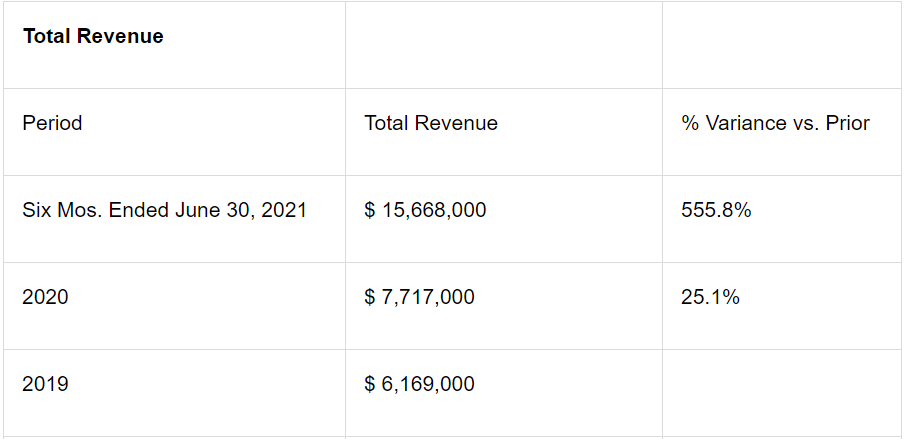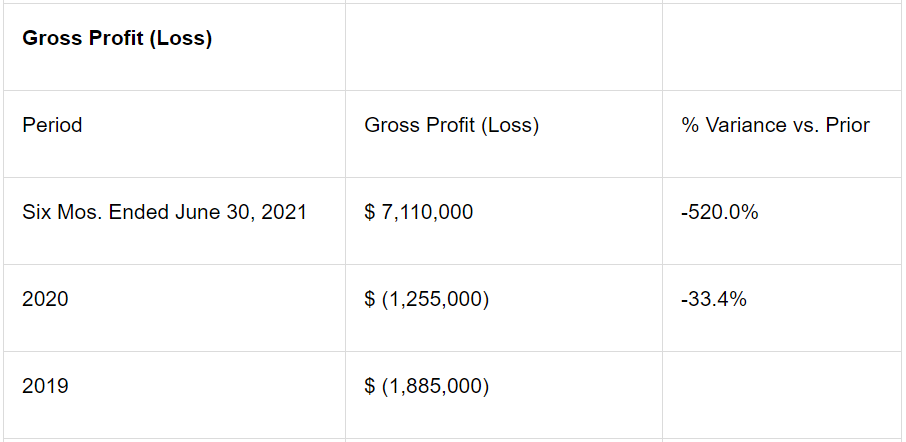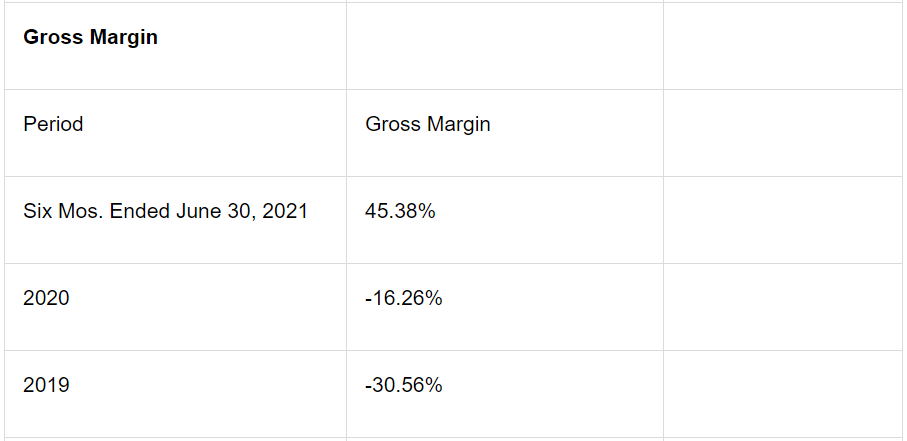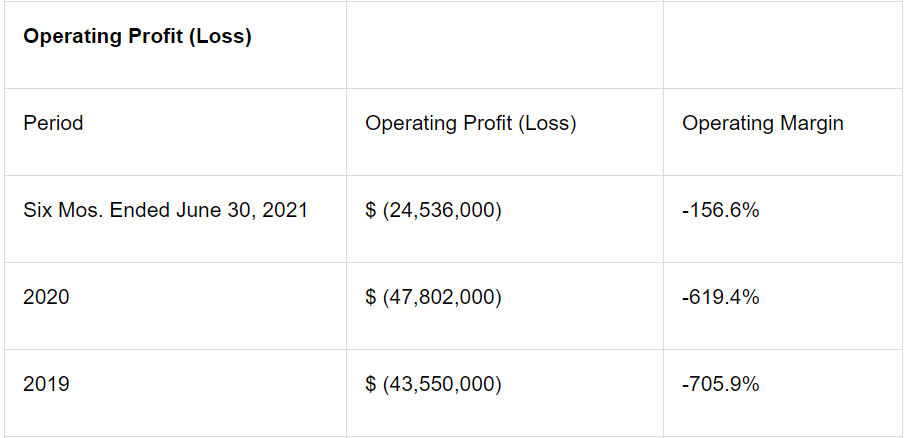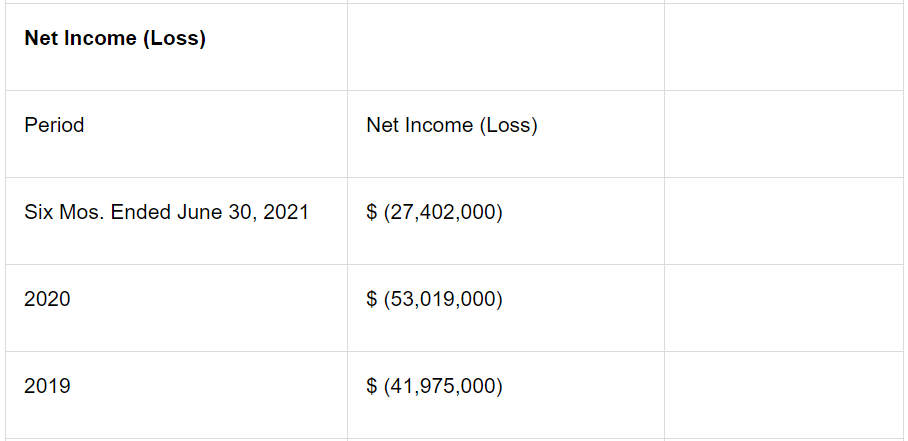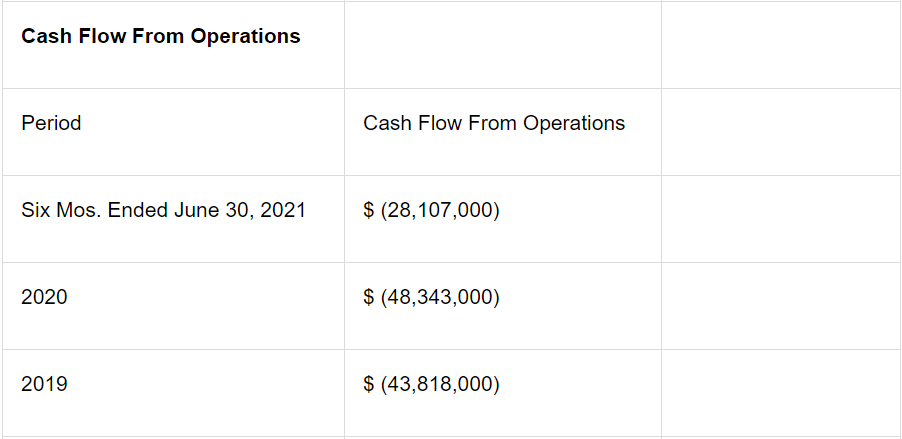Procept BioRobotics spikes 40% on its first day of trading.
Procept BioRobotics Corp. is set to go public Wednesday, as the California-based surgical robotics company's upsized initial public offering priced above the expected range at $25.00 per share. The company sold 6.56 million shares in the IPO to raise $163.9 million. Procept had previously expected to offer 5.5 million shares in the IPO, which was projected to price between $22 and $24 per share. The stock is expected to begin trading Wednesday on the Nasdaq under the ticker symbol "PRCT." With 41.21 million shares outstanding after the IPO, the pricing values Procept at $1.03 billion. BofA Securities and Goldman Sachs are the joint lead bookrunning managers. The company had recorded a net loss of $27.4 million on revenue of $15.7 million in the six months ended June 30, after a loss of $25.7 million on revenue of $2.4 million in the same period a year ago. The company is going public at a time that the Renaissance IPO ETF has gained 7.4% over the past three months while the S&P 500 has tacked on 4.6%.
Company and Technology
Redwood City, California-based Procept was founded to develop advanced surgical robotic devices for use in minimally invasive procedures.
Management is headed by President and CEO Reza Zadno, Ph.D., who has been with the firm since February 2020 and was previously president and CEO of Avedro, a healthcare company.
The company's first instrument is the AquaBeam Robotic System for use in urologic surgery with an initial focus on treating benign prostate hyperplasia.
Procept has received at least $328 million in equity investment from investors including CPMG, Viking Global, Fidelity and individuals.
Customer Acquisition
The firm sells its product to hospitals who in turn charge various third party payors for each service rendered.
The company is targeting 860 high-volume hospitals which account for 70% of all hospital-based resective procedures.
Selling, G&A expenses as a percentage of total revenue have dropped substantially as revenues have increased, as the figures below indicate:
Selling, G&A |
Expenses vs. Revenue |
Period |
Percentage |
Six Mos. Ended June 30, 2021 |
144.5% |
2020 |
392.3% |
2019 |
462.3% |
The Selling, G&A efficiency rate, defined as how many dollars of additional new revenue are generated by each dollar of Selling, G&A spend, rose to 0.6x in the most recent reporting period, as shown in the table below:
Selling, G&A |
Efficiency Rate |
Period |
Multiple |
Six Mos. Ended June 30, 2021 |
0.6 |
2020 |
0.1 |
Market & Competition
According to a 2018 marketresearch reportby Allied Market Research, the global market for treating benign prostatic hyperplasia was an estimated $10.7 billion in 2017 and is forecast to reach $20.1 billion by 2025.
This represents a forecast CAGR of 8.1% from 2018 to 2025.
The main drivers for this expected growth are an increase in disease incidence to the aging of the global population of males.
Also, alpha-blocker drugs are likely to be a major competitor, as they help in relaxing the muscle of the prostate and the bladder neck, allowing urination to occur more easily.
Major competitive or other industry participants include:
- Boehringer Ingelheim
- Allergan
- GlaxoSmithKline(NYSE:GSK)
- Merck(NYSE:MRK)
- Teleflex(NYSE:TFX)
- Boston Scientific(NYSE:BSX)
- Others
Financial Performance
Procept’s recent financial results can be summarized as follows:
- Sharply growing top-line revenue from a small base
- A swing to gross profit and positive gross margin
- High and increasing operating losses
- High and increasing cash used in operations
Below are relevant financial results derived from the firm’s registration statement:
As of June 30, 2021, Procept had $159.2 million in cash and $68.3 million in total liabilities.
Free cash flow during the twelve months ended June 30, 2021, was negative ($52.7 million).

